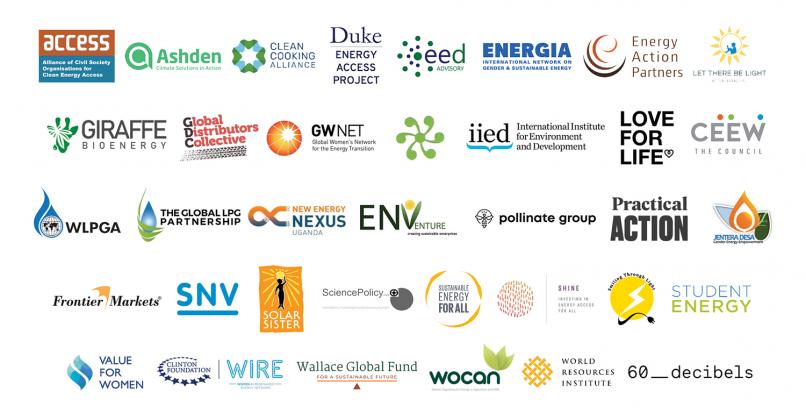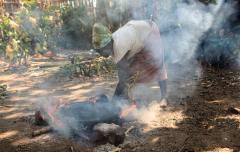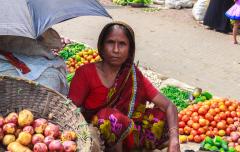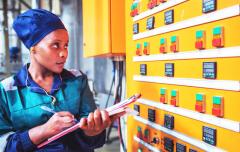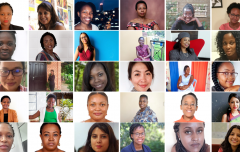Statement by the People-Centered Accelerator prior to the UN High-level Dialogue on Energy
On the day of the UN High-level Dialogue on Energy, the following signatories on behalf of the People-Centered Accelerator issued a statement urging world leaders, donors, companies, and the global community to reaffirm their commitments to the principles of gender equality, social inclusion, and women’s empowerment.
In promoting the inclusion of women and marginalized communities to achieve universal access to sustainable energy services, we can guarantee a just energy transition that leaves no one behind.
The Sustainable Development Goals (SDGs) provide an integrated global roadmap for sustainable, inclusive development. Sustainable Development Goal 7 (SDG7) calls for “affordable, reliable, sustainable and modern energy for all” by 2030. Its three core targets are to 1) ensure universal access to affordable, reliable and modern energy services; 2) increase the share of renewable energy in the global energy mix substantially and; 3) double the global rate of improvement in energy efficiency. From economic development to poverty alleviation, from security concerns to the full empowerment of women, energy lies at the heart of the Sustainable Development Goals (SDGs).
There is growing recognition of the challenges in reaching the last mile in high-impact countries (HICs), including the gendered nature of energy poverty and the role of energy access as an enabler of other development sectors. The People-Centered Accelerator (PCA) is a voluntary partnership of more than 45 organizations devoted to gender equality, social inclusion, and women’s empowerment. In promoting the inclusion of women and marginalized communities to achieve universal access to sustainable energy services and related business opportunities, the Accelerator seeks to secure a just energy transition that leaves no one behind.
Nearly 760 million people live without electricity access, and 2.6 billion lack access to clean cooking solutions. Moreover, crises often exacerbate existing challenges in resource-constrained settings. Today, we recognize how energy poverty in community and home settings amplifies health and safety risks, leaving vulnerable populations even further behind. However, there is often limited understanding at the national level among key decision-makers and stakeholders of why these issues should be central to energy service planning and delivery, and limited capacity amongst national and sub-national governments to effectively address these issues, including through integrated and inclusive energy planning.
With less than nine years to go, we call for an energy revolution to tackle the triple threat of energy poverty, energy inefficiency, and the urgent need for a just and clean energy transition.
The strategy for doing this includes supporting communities in creating localized solutions that effectively address their unique energy needs:
- Advancing inclusive and integrated approaches to energy planning and delivery that engage all stakeholders
- Enhancing and extending the provision of sustainable modern energy by unlocking finance from private and public sources for gender-smart, socially inclusive approaches in the energy sector
- Incorporating gender equality at the heart of the energy transition by enhancing women’s full participation in sustainable energy solutions at every level
- Bringing together or strengthening collaboration between a broad range of stakeholders to achieve these aims.
This week, during the UN General Assembly, the UN Secretary-General is convening the High-level Dialogue on Energy (HLDE). The last time such a meeting was held was 40 years ago, during the oil crisis in 1981.
The High-level Dialogue shines a much-needed light on energy to give it the attention and resources needed to ensure no one is left behind in the global energy transition. Energy Compacts will ensure we commit to the near-term actions required to achieve our long-term goals in the run-up to COP26 and beyond.
With this in mind, the PCA and several of its members have signed onto a multi-stakeholder Gender and Energy Compact engaging government, private sector, finance, academia, civil society, youth, intergovernmental organizations and media. Together and individually, we support a just and inclusive energy transition that is gender-responsive, youth-inclusive, locally-led and globally connected.
On behalf of the People-Centered Accelerator, we urge world leaders, donors, companies, and the global community to reaffirm their commitments to the principles of gender equality, social inclusion, and women’s empowerment.
We call on the global community to address long-standing, systemic inequities by removing barriers to energy access — such as limited access to financing for women — and dismantle other significant barriers to achieve community-rooted, sustainable, clean energy for all.
We call upon governments to prioritize more needs-based planning that disaggregates the needs of different end-user groups underpinned by better data on the barriers in different contexts, including the gendered aspects of energy poverty.
The Sustainable Development Goals are unattainable without clean energy access. The leadership of women, young visionaries, and communities most impacted by climate change is the surest path to success. The PCA recognizes and leverages the unique power of SDG7 to be an enabler of all 17 Sustainable Development Goals and calls for a rapid and inclusive transition to Sustainable Energy for All.
Signatories

